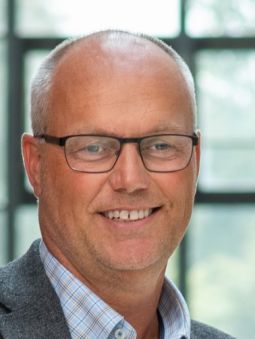Events
Transforming Mathematics teaching - the how? Joint CREME/BagLES Seminar

Prof Morten Brekke
| Date: | Thursday 30 March 2023 13:00 - 15:00 |
| Location: | Mathematics Building MB-502 |
Join us for this joint seminar, where Prof Morten Brekke will discuss MatRIC (the Centre for Research, Innovation and Coordination of Mathematics Teaching at Agder University), and QMUL colleagues will discuss their approaches to (Engineering) Mathematics education.
Prof Morten Brekke - Transforming Mathematics teaching - the how?
Part 1: MatRIC -Centre for Research, Innovation and Coordination of Mathematics Teaching
In this first part I will briefly introduce MatRIC, its mission and overall achievements. MatRIC (Centre for Research, Innovation and Coordination of Mathematics Teaching) is a National Centre for Excellence in Education in Norway appointed in 2014. Its vision is “Students enjoying transformed and improved learning experiences of mathematics in higher education”. I will show examples of how we have tried to transform and improve learning experiences of mathematics in higher education and I will focus on three main objectives:
- Improvement of students’ learning experiences, with activities such as drop-in support (by students for students), mentors who are liaisons between students and the centre, camp for teaching assistants, and a forum for the MatRIC-team and mentors (MatRIC Forum).
- Improvement of teaching with, for example, project about mathematics for economics students; annual national/international conference on mathematics education. Induction course for mathematics educators. Forum for learning about digital assessment. Development of national guidelines regarding mathematics for engineering education, and Partnership for learning and teaching (Platinum)
- Research into learning and teaching mathematics, engagement in national and international conferences and collaboration with our priority research centre MERGA (Mathematics Education Research Group at Agder).
Part 2: Mathematics assessment project, failure rate down from 44% to 12 %
In this part I will focus on a design sprint project in engineering mathematics. We have struggled with failure rates of over 40 percent in mathematics in our engineering education for several years. Several measures have been tried without significantly affecting the failure rate. In the spring of 2022, the dean of the faculty decided that something drastic needed to be done and decreed that a one-week design sprint should be conducted to change the way the calculus course was taught. The change was to be based on experiences from a previous pilot carried out by MatRIC. The idea was to change the assessment of the course from a final exam to conducting sub-tests during the course. The development of this assessment method was carried out during the design sprint, where the mathematics academic community, along with the examination office, Canvas responsible, and study administration, worked together for five days. During this time, clarifications were made about the regulations and rules within the examination regulations, IT systems, and Canvas.
The assessment is a portfolio consisting of 4 sub-tests, each worth up to 15 points. Additionally, students must submit a text document where they present four tasks of their choice. In the text document, students are assessed on their ability to write mathematics correctly, as well as their ability to present mathematical arguments in writing. This section is worth up to 40 points. The test is conducted under supervision so that students cannot receive help while taking it. The test questions are randomized so that no two students receive the same tasks, although the tasks are related to the same topic. Students can take the test as many times as they wish during a two-week period. These testing periods are spread throughout the semester.
Dr Melania Nica (SMS) - The placement year: an experiential learning perspective
Students at QMUL can opt for a year in industry experience as part of their degree. From an academic perspective this is a work-based learning experience that contributes credits towards the university degree. In this talk I will present my perspective, as the SMS placement co-ordinator, about how prior interaction with peers already in placement and potential employers can help students not only to secure a job but also to perform well in their future roles. Further I will talk about the academic assessment of the placement students - this is different than their work performance. At SMS the credit earning assessment is based on individual reflection on the learning experience in work, self-awareness and contextual awareness.
Dr Rehan Shah (SEMS) - Teaching Ethics in Mathematics? You must be joking!
For the last 20 years it has become increasingly obvious, and increasingly pressing, that mathematicians should be taught some ethical awareness so as to realise the impact of their work. This extends even to those more highly trained, ranging from graduate students to academic staff. But what should we be teaching mathematicians and how should we do it? In this talk, I will discuss the need for the consideration of ethical aspects within mathematics and outline some of the ways in which we can incorporate the teaching of ethics within mathematics courses at university.
Dr Pedro Vergel (SMS) - Using active learning to increase student engagement and employability in postgraduate lectures
At higher education institutions, many lectures are still taught in a traditional manner, with students passively listening to a lecturer deliver academic content. However, there is an abundance of literature that suggests an active learning strategy is more effective and has a positive effect on student engagement and performance.
I have introduced collaborative active learning exercises into lectures with the aims of increasing student engagement, facilitating the development of employability skills, and meeting learning objectives at programme, university and higher education levels. This research has served to improve teaching pedagogy and inform the wider academic community of improvements than can be made in similar modules for the benefit of students’ learning.
| People: | Henri HUIJBERTS Rehan SHAH |
| Research Centre: | Research in Engineering and Materials Education |

